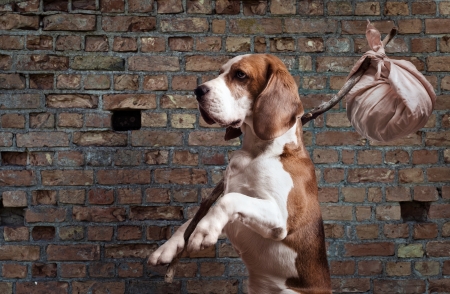1. Introduction
Welcome to our comprehensive guide, Top 20 Dog Rescue Centres in England: Locations, Reviews and How to Adopt. Across England’s bustling cities and tranquil countryside, dog rescue centres are quietly transforming lives—both canine and human. These havens provide not just shelter, but hope and a fresh start for dogs seeking their forever homes. With a distinctive British approach to animal welfare, adopting a dog is more than an act of compassion; it’s a cherished part of UK culture that brings communities together.
This article is designed to help you navigate the landscape of English dog rescue by showcasing the most reputable centres, sharing genuine reviews, and guiding you step-by-step through the local adoption process. Whether you’re a seasoned pet owner or considering your first rescue companion, you’ll discover how rewarding it can be to offer a second chance to our four-legged friends.
Why Choose Adoption in England?
- Cultural Tradition: Adopting from rescue centres is embraced across the UK as an ethical and responsible choice.
- Support Networks: Local communities and volunteers play vital roles in supporting rescued dogs’ transitions into new homes.
- Sustainability: Choosing adoption helps reduce overbreeding and supports animal welfare initiatives nationwide.
What You’ll Find in This Guide
| Section | Description |
|---|---|
| Top 20 Centres | A handpicked list of England’s most trusted dog rescues with essential details |
| User Reviews | Authentic feedback from adopters and volunteers |
| How to Adopt | Step-by-step guidance on the British adoption process |
Your Journey Begins Here
If you’re ready to welcome a loyal companion into your home—or simply want to support the extraordinary work of local rescues—this curated guide will inspire and inform every step of your journey.
2. How Dog Rescue Centres Operate in England
Dog rescue centres across England play a vital role in animal welfare, each bringing a unique blend of professionalism and compassion shaped by British values. These centres not only provide shelter for dogs in need but also ensure their well-being through thoughtful routines, community engagement, and strict assessment protocols. Here’s an overview of how these organisations function, reflecting local approaches to caring for our canine companions.
Assessment and Intake Process
Upon arrival, every dog undergoes a careful assessment to determine its health status, temperament, and any special requirements. This helps staff match each dog with the right care plan and potential adopters. The process is both thorough and gentle, ensuring dogs feel safe from the start.
| Step | Description |
|---|---|
| Initial Health Check | Veterinary examination to screen for illnesses or injuries |
| Behavioural Assessment | Observation by trained staff to understand personality and needs |
| Profile Creation | Recording detailed information to help with future rehoming |
Daily Care Routines
Caring for dogs in a rescue centre goes far beyond providing food and shelter. English centres are known for their attention to detail, balancing structured routines with plenty of enrichment activities. Dogs are walked regularly—rain or shine—and enjoy social time with both humans and other animals where appropriate.
| Routine Activity | Purpose |
|---|---|
| Feeding Times | Nutritional meals suited to individual dietary needs |
| Exercise Sessions | Daily walks and playtime for physical health and stimulation |
| Training & Socialisation | Basic obedience training and confidence-building activities |
| Health Monitoring | Regular vet checks and medication administration if needed |
Community Involvement and Local Support
A cornerstone of English dog rescue centres is their strong connection with the community. Many rely on volunteers who generously give their time, whether walking dogs, assisting with fundraising events, or helping at adoption days. Public education about responsible pet ownership is another key focus, fostering a culture where animal welfare is everyone’s responsibility.
Common Community Initiatives:
- Puppy socialisation classes open to local families
- Charity shops raising funds for daily operations
- School visits promoting animal welfare awareness
- Open Days for the public to meet adoptable dogs and learn more about the work behind the scenes
The English Approach: A Blend of Heart and Tradition
The operation of rescue centres in England reflects a blend of heartfelt care, structure, and respect for tradition. With robust procedures, daily enrichment, and a deep-rooted sense of community spirit, these centres create safe havens for dogs while setting high standards for animal welfare nationwide.

3. Top 20 Dog Rescue Centres in England: Locations and Highlights
England is home to a vibrant network of dog rescue centres, each with its own unique story, set of facilities, and special place in the hearts of their communities. Whether you’re looking for a homely sanctuary in the countryside or an urban centre bustling with volunteers, these top 20 rescue centres represent the very best in care, compassion, and commitment to our four-legged friends.
A Showcase of England’s Leading Dog Rescue Centres
Below you’ll find a curated list featuring each centre’s location, standout features, and what sets them apart. This guide is designed to help you discover reputable rescues near you and appreciate their local impact.
| Name | Location | Key Facilities | Community Highlights |
|---|---|---|---|
| Battersea Dogs & Cats Home | London, SW8 4AA | 24/7 veterinary care, spacious kennels, on-site behaviourists | Iconic rescue with over 160 years of history helping Londoners adopt pets |
| Dogs Trust Manchester | Denton, M34 3SG | Modern rehoming centre, outdoor exercise areas, training classes | Pioneering educational outreach for responsible ownership in Greater Manchester |
| The Mayhew Animal Home | London, NW10 6BJ | Holistic welfare programmes, community vet clinic, adoption support | Award-winning work supporting vulnerable pet owners and street dogs |
| Wood Green: The Animals Charity | Godmanchester, PE29 2NH | State-of-the-art animal care campus, extensive enrichment spaces | Known for their innovative approach to rehoming and pet education events |
| Manchester & Cheshire Dogs’ Home | Manchester, M18 7WR / Cheshire, WA6 0PJ | Kennels for over 400 dogs, rehabilitation services | Pillars of the North West’s rescue community since 1893 |
| Blue Cross Rehoming Centre – Burford | Oxfordshire, OX18 4PF | Purpose-built kennels, behaviour support team, on-site shop | Loved for their family-friendly open days and educational workshops |
| Kennelgate Dog Rescue (Jerry Green) | Broughton, DN20 0BJ (and other locations) | Large exercise fields, dog training suites, sensory gardens | A champion for shy and special needs dogs across Lincolnshire and Yorkshire |
| Sighthound Welfare UK (Greyhound Trust) | Aldershot, GU11 1AN (plus nationwide branches) | Bespoke sighthound kennels, adoption advice clinics | The leading voice for retired racing greyhounds in England |
| Birmingham Dogs Home | Birmingham B9 5NB / Wolverhampton WV10 7PG | Extensive exercise paddocks, puppy socialisation rooms | Cherished Midlands institution with strong community ties since 1892 |
| Liverpool Dog Rescue (Freshfields Animal Rescue) | Liverpool L29 3EA / Wales LL54 7UW | Rural sanctuary setting, rehabilitation programmes | A lifeline for dogs from challenging backgrounds in Merseyside |
| Evesham Greyhound & Lurcher Rescue | Evesham WR11 | No-kennel foster network model | Pioneers of the “home-first” philosophy for sight hounds |
| Cotswolds Dogs & Cats Home (RSPCA) | Nailsworth GL6 8HZ | Purpose-built facility with play barns and medical suite | Loved locally for school visits and animal therapy sessions |
| Many Tears Animal Rescue | Cefneithin SA14 7HB (serves England) | Diverse foster network and specialist medical care | A haven for ex-breeding dogs needing patience and love |
| Paws2Rescue UK | Loughton IG10 (nationwide fostering) | No-shelter; all dogs live in foster homes until adopted | A trailblazer for international and UK-based rescue collaboration |
| The Ark Animal Rescue & Retirement Home | Louth LN11 7NX | Countryside site with free-roaming fields and senior dog cottages | Treasured by locals for caring for older and overlooked pets |
| Foal Farm Animal Rescue Centre | Biggin Hill TN16 3AX | Dog agility course , training barn , public events | Famous for hands-on volunteer opportunities in Kent |
| Leicester Animal Aid | Huncote LE9 3LE | Specialist behaviour assessment , rehoming support | Empowering adopters through post-adoption advice |
| All Dogs Matter | London N6 / foster homes | Urban fostering network , community outreach | Celebrated for creative fundraising events across the capital |
| Raystede Centre for Animal Welfare | Ringmer BN8 5AJ | Visitor centre , lakeside walks , family education days | A Sussex gem known for tranquil surroundings and animal wellbeing workshops |
| Bath Cats & Dogs Home | Bath BA2 7AZ | On -site veterinary surgery , dedicated puppy block | Beloved by Bathonians for over a century of compassionate care |
How These Centres Shape Their Communities
From bustling city sanctuaries to rural retreats steeped in heritage , these dog rescue centres are more than just places to find a new furry friend — they’re cornerstones of their communities . Through education , outreach , volunteering , and unwavering dedication , each plays a vital role in making England a kinder place for dogs and people alike . If you’re considering adoption or simply wish to get involved , visiting your local centre is a wonderful first step towards making a difference .
4. Reviews and What People Say
When it comes to choosing the right dog rescue centre, genuine experiences from adopters and volunteers across England play an essential role. British pet lovers value not only the welfare of the animals but also the professionalism, transparency, and welcoming atmosphere of each centre. Here’s what people are saying about these top 20 rescue centres, offering a glimpse into British perspectives on quality care and community impact.
Adopter Stories: Heartfelt Testimonies
Centre Name |
Adopter Feedback |
Highlight |
|---|---|---|
| Battersea Dogs & Cats Home, London | “Staff were incredibly knowledgeable and matched us with a dog that fits perfectly with our family.” – Emma, London | Personalised adoption process |
| The Dogs Trust, Manchester | “The aftercare advice was so reassuring. They truly care for their dogs even after they’ve left.” – Tom, Salford | Comprehensive support |
| Wood Green, Cambridgeshire | “Facilities are spotless and the team made us feel at home throughout.” – Priya, Cambridge | Immaculate environment |
| Birmingham Dogs Home | “We loved the open day events—brilliant for families and first-time adopters.” – Lucy, Solihull | Community engagement |
| Blue Cross, Suffolk Rehoming Centre | “The staff showed real compassion for every animal. We felt supported at every step.” – Jack & Hannah, Ipswich | Caring approach |
Volunteer Insights: Giving Back Locally
Many volunteers highlight the sense of community found in English dog rescue centres. “Volunteering here is more than just walking dogs; it’s about being part of a family,” says Olivia from Newcastle Dog & Cat Shelter. Others praise the training provided: “I learned so much about canine behaviour—skills I now use in my everyday life,” shares Ben from Jerry Green Dog Rescue in Nottinghamshire.
The British Standard: What Matters Most?
Aspect of Care |
Typical British Expectation or Praise |
|---|---|
| Animal Welfare Standards | Centres praised for rigorous health checks and enrichment activities. |
| Staff Professionalism | Positive remarks on polite, informed staff and clear adoption procedures. |
| Transparency & Honesty | Praise for honest assessments of each dogs needs and temperament. |
| Community Engagement | Loved for hosting educational talks, open days, and fundraising events. |
| Sustainability Efforts | Acknowledged for eco-friendly initiatives such as recycling programmes. |
In Their Own Words: Community Impact Across England
The consensus is clear—these centres make a genuine difference not just to dogs in need, but to local communities as well. Many adopters mention how their lives have been enriched by adopting a rescue dog, while volunteers note a sense of pride in supporting a cause close to their hearts. The British ethos shines through in every story: compassion for animals, commitment to high standards, and a warm welcome for all who step through their doors.
5. How to Adopt: The Step-by-Step Process in England
Bringing a rescue dog into your English home is a rewarding journey, but navigating the adoption process can feel daunting at first. Here’s a practical, locally-relevant guide tailored for prospective adopters in England—whether you’re eyeing a pup in London or a senior companion in Yorkshire. Each rescue centre may have slight variations, but this step-by-step overview will give you clarity and confidence as you embark on your journey.
Step 1: Research & Enquiry
Begin by exploring the websites and reviews of reputable rescue centres—like Battersea Dogs & Cats Home, Dogs Trust, or your local RSPCA branch. Read up on their adoption criteria and available dogs. Once you spot a potential match, submit an online enquiry form or phone the centre directly to express your interest.
Top Tips for Research
| Resource | What to Look For |
|---|---|
| Centre Website | Adoption policies, FAQs, list of available dogs |
| User Reviews (Google, Trustpilot) | Community feedback on support and aftercare |
| Social Media Pages | Updates about success stories and events |
Step 2: Home Check & Application
Most English rescues require an application form detailing your living arrangements, experience with pets, and lifestyle. Expect a home check—either in-person or virtual—to ensure your space is safe and suitable. This is standard practice to prioritise the wellbeing of each dog.
Application Essentials Checklist
- Proof of address (utility bill or council tax statement)
- Permission from landlord (if renting)
- Photos/video of your garden or outdoor space (if requested)
- ID verification (passport or driving licence)
Step 3: Meet & Greet
If your application is successful, the centre will invite you for a meet-and-greet with the dog. This is your chance to interact in a controlled environment and ask questions about temperament, history, and care routines. Some rescues offer trial walks or ‘foster-to-adopt’ schemes so both you and the dog can be sure it’s the right fit.
Step 4: Adoption Fee & Paperwork
An adoption fee typically covers vaccinations, microchipping, neutering/spaying, and basic health checks. Fees vary by centre and age of dog—see below for typical ranges:
| Dog Type | Typical Adoption Fee (£) |
|---|---|
| Puppy (under 1 year) | £200–£350 |
| Adult Dog (1–8 years) | £150–£250 |
| Senior Dog (8+ years) | £100–£175 |
You’ll sign an adoption agreement outlining care standards and return policies should circumstances change.
Step 5: Bringing Your Dog Home & Aftercare Support
The big day! Prepare a quiet space at home with essentials—bed, bowls, toys—and gradually introduce your new companion to household routines. Most English rescues offer post-adoption support, advice lines, or follow-up visits to help both pet and owner settle in smoothly.
Navigating this thoughtful process ensures every adoption is set up for success—for you and for England’s deserving rescue dogs alike.
6. Supporting Dog Rescue: Donations, Volunteering, and Community Spirit
Adopting a rescue dog is truly rewarding, but there are so many heartfelt ways to support England’s dedicated dog rescue centres beyond bringing a pup home. Whether you have time, resources, or simply a passion for pups, every effort counts towards creating a more compassionate community. Here’s how you can make a meaningful difference, tailored to the British lifestyle.
Ways to Give Back
| Type of Support | Examples | How to Get Involved |
|---|---|---|
| Volunteering | Dog walking, kennel cleaning, event assistance | Contact local centres for shifts or open days; many welcome regular helpers |
| Donations | Money, food, blankets, toys | Check wish lists on centre websites or drop off items during visiting hours |
| Fundraising | Bake sales, sponsored runs, charity car boot sales | Organise with friends or your community group—many rescues provide fundraising kits |
| Raising Awareness | Sharing posts online, talking at schools, hosting informational stalls at local fairs | Follow and share rescue centre updates on social media or offer to speak locally about adoption |
The British Way: Community-Driven Support
The spirit of “doing your bit” is woven into British culture. Many villages and towns regularly host dog shows or bring-and-buy sales in aid of local rescues. Why not suggest a “charity tea morning” with neighbours, or get your book club involved in sponsoring a dog?
Local Initiatives That Make a Difference
- Puppy Playdates: Organise social walks in your local park—great for raising funds and awareness.
- Knit for Pups: Craft groups can create blankets or jumpers for chilly kennels.
- Coffee Mornings: Host a cuppa-and-cake gathering where donations go straight to the centre.
Your Ongoing Impact
No matter your skills or schedule, there is always a way to help—from popping by once a month to lend a hand, to making a small regular donation. Each act builds not just safer futures for dogs in need, but also knits together stronger communities across England. Supporting your chosen centre is an everyday way to champion kindness—and it starts right on your doorstep.


